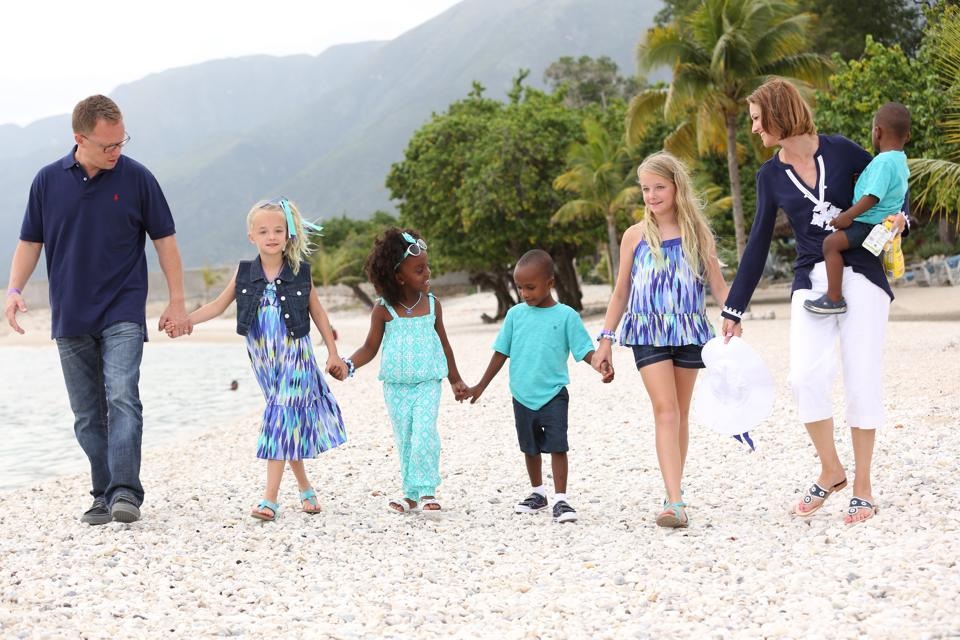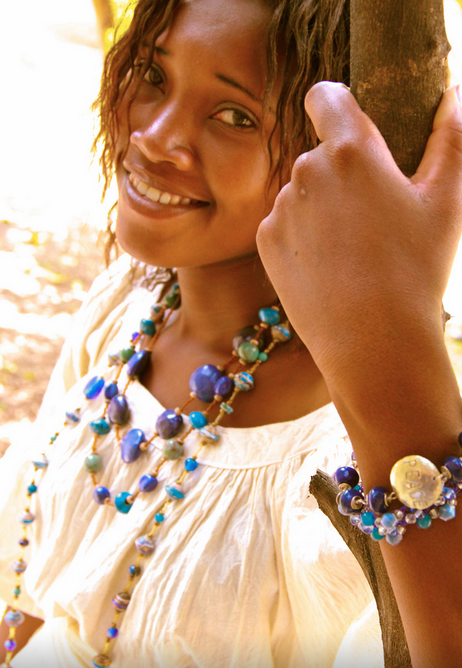We realize that a large number of people in our community have close ties with adoption; either as an adoptive parent, grandparent, aunt or uncle, a first family, an adoptee, or maybe as the sibling or cousin of an adoptee. For each and every person from any of these groups, we know you have stories to share that provide unique perspectives on a powerfully life changing experience.
For those of you who are part of a family brought together through cross cultural, transracial, and/or international adoptions, you know that things take on an even greater degree of complexity. It can be tough terrain to navigate in our imperfect society, but with more adoptees and adoptive parents sharing their experiences, there is a strong support community out there for those of you just beginning on this path.

Over the years we’ve interacted with a series of singularly remarkable parents who have taken the time to research, act, and reflect on their call to adopt from Haiti. Among the hardest lessons they’ve learned (and subsequently shared, for the good of all parents, siblings, and children traveling down this road) are these 3 things:
1) The international adoption process can be a brutally drawn out experience: With the average adoption process in Haiti taking somewhere between 18-24 months, there are a lot of extreme emotions to filter through before you ever bring your child home. It takes a lot of patience and perseverance to see an international adoption all the way through.
Conny’s story:
For Conny and her husband, the adoption process has been a long one – stretching out over more than two years. Nevertheless, Conny says that there have been so many moments of joy along the way.
“It was an unbelievable joy when we heard we will be the parents of twins, but it was also an unbelievable touching moment when we saw our kids for the first time, and when they sat on our lap for the first time. A great joy I probably wouldn’t have experienced if I didn’t speak Creole was this one: The first day of our visit, our daughter sat on my lap, and other children came and touched me, looking for some affection. Our daughter pushed them away saying ‘Non, se manman blan pa m!’ It tugged at my heartstrings!”
Another occasion that stands out for Conny was giving her children the photo books she and her husband created to introduce them to life in Germany:
“We heard about the photo book from other adoptive parents. They had just created a photo book without text, so that their children had a souvenir for the period the adoptive parents would be away. I had the idea, if we wrote some things in Creole, explaining the photos, perhaps the nounous could read it to them. Actually, I don’t know if they have the time to do that, but I like the idea that it’s possible.” As they prepare to bring their son and daughter home, Conny says the thing she’s looking forward to most is “just being together with them, being a family!”
The template that Conny used to create their family’s photo book is available with Creole translations for free here:
http://www.haitihub.com/creole-adoption-photobook/.
2) Good intentions are not enough: As is the case when working anywhere in Haiti, entering into adoption without doing your research can be EXTREMELY harmful.
As an adoptive parent living and working in Haiti, Tara Livesay does a much better job than we ever could of addressing the particular pitfalls of the system (While still recognizing the beautiful and redemptive power of adoption) Check out her post on adoption in Haiti here.
3) Bringing your son or daughter home is only the beginning, and it takes a lot of support to help him/her readjust to a new place, culture, language, and norm. Relying on family and friends for help is critically important.
Equally important is the degree to which you are able to surround your child/children with role models who can better help them connect with their original ethnic and cultural identity. Determining one’s own identity as a transracial adoptee can be challenging. Expanding and diversifying your network of friends can be life changing for you and your child.
Christina’s Story:
Christina joined the HaitiHub community in 2013 hoping that learning Creole would be “a productive way to channel some of [her] anxious energy and impatience during the long Haiti adoption process”.
When her sons came home in June, 2014 she made a commitment to speak 100% Creole with them, and her family has jumped on board too: “My three non-Haitian daughters now have a huge Creole vocabulary and actively seek out Creole speakers to engage in conversations with.”
As the boys grow up, Christina and her family hope to stay actively involved in Haiti, but while away from Haiti, she said that their local Haitian community has also been a huge blessing:
“Haitian children at school have befriended our children and their families have reached out to ours to help us connect with other Haitians and Creole speakers…We’ve had a number of people approach for a chat about Haiti after overhearing our family’s conversations at the park or the beach or the grocery store. I have a magnet of the Haiti flag on the back of my car and that’s been a conversation-starter in many a parking lot!”
What we know of the unique blessings and particular challenges of cross-cultural and transracial adoption, we’ve largely learned from you, our HaitiHub community, and through seeking out voices on all sides of the discussion. We do not, and cannot, pretend to be experts on the adoption experience in Haiti.
If we’ve learned anything, it’s that we have so much to learn from one another, so we feel a strong responsibility to get the conversation started.
If you have a story that you would like to share that you feel could benefit other families in our community, please send it to community@haitihub.com
We’d love to know what you think of our list – were these the 3 most challenging things you faced in your adoption experience, or should we expand this list to include something else?
Feel free to respond in the comments field below.
Finally, while we believe in adoption, we’d also like to state our support for the organizations that focus on keeping families together. We strongly believe in the right of first families to raise their children regardless of their socioeconomic circumstances and we applaud the organizations that work to support these families – we urge you to please consider supporting these organizations in whatever way you can.
The Apparent Project is one organization whose work directly impacts families at risk of being separated due to financial hardship. Supporting them is as easy as purchasing art and jewelry from the incredibly talented artists they employ! We’ve featured them on the blog before – check out our When Art Replaces Charity post for more on the Apparent Project.
A special thanks to Conny and Christina who shared their stories with us. These stories are excerpted from the May, 2015 and October, 2014 HaitiHub Newsletters respectively. We are also grateful for the amazing writing Tara Livesay regularly shares on her personal blog; please take some time to visit her site and learn more about the great work she is doing with Heartline Ministries in Haiti.
Written by Erin Nguyen on July 9, 2015



